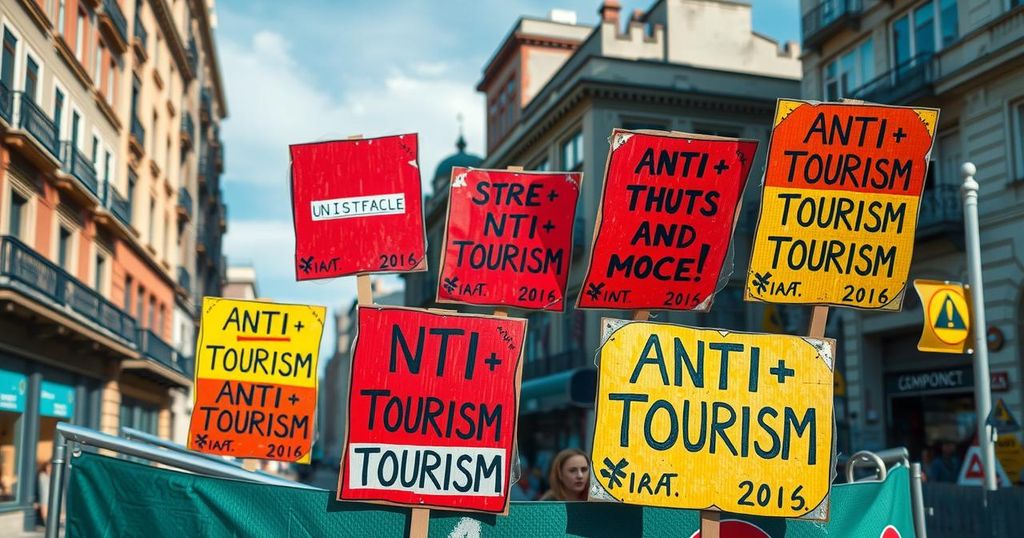Cape Town’s Anti-Tourism Sentiment Grows Amidst Digital Nomads’ Influx
Cape Town faces a growing anti-tourism movement as activists criticize the influx of digital nomads, claiming it drives up living costs. Influencer Naledi Mallela and Mayor Geordin Hill-Lewis provide contrasting views on the issue, reflecting concerns over housing affordability and economic impacts. This trend is echoed in Europe, where protests against mass tourism are becoming more prevalent.
Cape Town is witnessing a surge in anti-tourism sentiment as local activists express their discontent towards an influx of digital nomads. These remote workers, who often come from affluent nations, have been accused of increasing living costs and pricing locals out of their homes, despite local authorities promoting their presence as economically beneficial.
The recent Nomad Week event, organized by the city in collaboration with Work Wanderers, highlighted tensions when activists labeled it as ‘a celebration of displacement.’ The group Dismantling the Ivory Tower criticized the event, likening the modern tourist economy to colonialism, where apps replace traditional forms of conquest.
Prominent figures such as South African influencer Naledi Mallela have voiced concerns over rising expenses brought by digital nomads. In a TikTok video, she lamented the increased costs of everyday items, emphasizing that locals face higher prices as a consequence of the tourism influx.
Geordin Hill-Lewis, the mayor of Cape Town, defended the economic contributions of digital nomads but acknowledged the need for fairness in the housing market. He proposed taxing permanent Airbnb rentals at a commercial rate to alleviate the economic pressure on local residents, indicating a desire for equitable treatment between tourists and locals.
A report from the United Nations World Tourism Organisation noted a rise in countries offering digital nomad visas, reflecting the growing phenomenon. However, there remains an ongoing debate about the economic impact of these programs, pointing to the need for careful consideration of benefits and costs.
The international anti-tourism movement is gaining traction, with similar sentiments echoed across Europe. Protest actions have intensified, exemplified by recent demonstrations in Spain, where locals rallied against the negative effects of mass tourism on their communities. Groups are now planning to strengthen their networks to resist the pressures of tourism in Southern Europe.
In summary, Cape Town is at the forefront of a burgeoning anti-tourism movement driven by concerns from local activists regarding the effects of digital nomads on housing affordability. Influencers and local authorities are divided on the matter, with some viewing these workers as economic contributors and others as catalysts for rising costs. The international trend towards anti-tourism activism is increasingly visible, reflecting broader community frustrations with the consequences of mass tourism.
Original Source: www.dailymail.co.uk




Post Comment